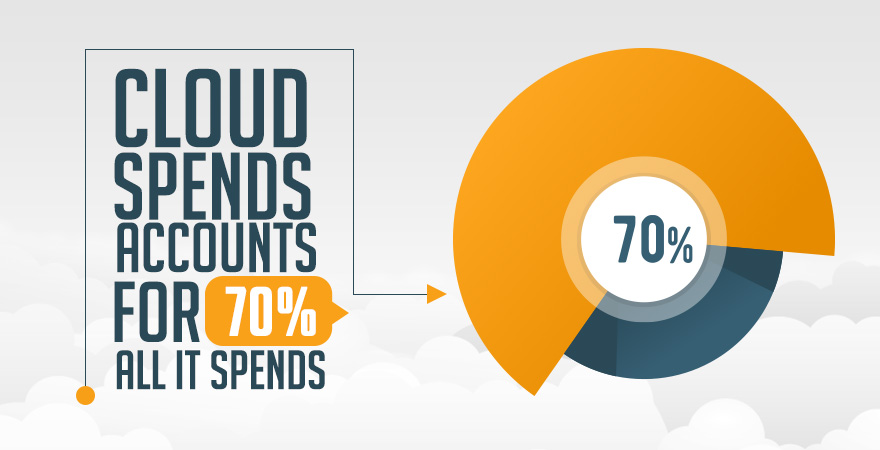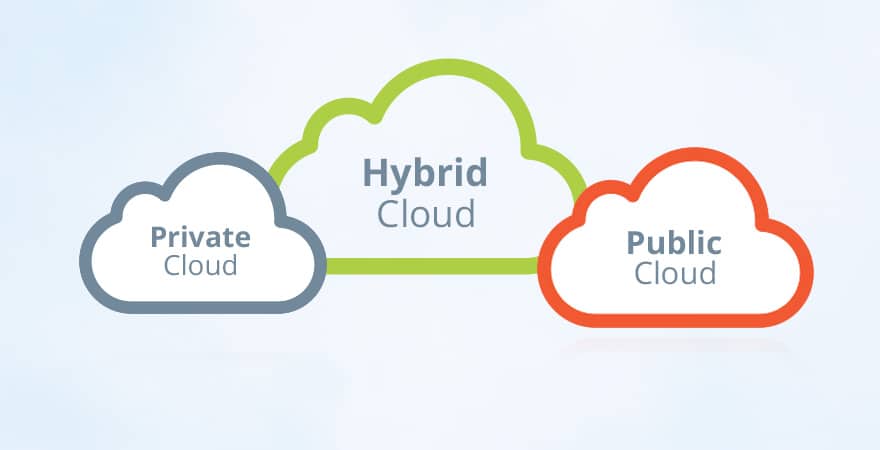Cloud Computing, once considered to be slow in adoption by various small as well as larger enterprises is a hot topic now a days. It has been predicted that by the end of 2019 cloud market is to grow to at least $200 Billion. Cloud initiatives are also expected to grow exponentially and by 2020 it is being said that this will account for almost 70% of all tech spending which is more than 2/3rd of all tech spend and still growing. Dave Bartoletti in a recent post on Forrester.com states that in 2019 cloud computing will establish itself as a firm foundation of enterprise application platforms. Now that the cloud adoption is pretty much on track and the concerns of security and control are being looked into, more and more executives and organizations are looking into ways on how to better manage the cloud and implement its application to benefit businesses in more efficient ways.

Types of Cloud Services
Cloud Computing or simply cloud provides users anywhere, anytime and any device access given they have internet availability. In the ever changing, ever challenging and competitive business environment, it is vital to have access to mission critical data exactly when required irrespective of the device and location. What else can we ask for as cloud caters to this all and there are multiple types of cloud computing offers to choose from.

Public Cloud
A public cloud is built on a third party platform where each and every aspect of the infrastructure , its security, its applicability, availability and maintenance is all done by a third party and users get their own cloud to use within a shared cloud structure. This third party is responsible for making sure business applications are run smoothly and business runs 24/7/365. This model helps reduce cost and increase flexibility.
Private Cloud
A private cloud can also be called an on-prem cloud solution which is more of a personal cloud built by the organization itself for its computing use by the hardware and software it owns. A private cloud requires everything from an IT staff to manage the day to day operations, a private data center to manage all the traffic and data files and its computing requirements, security protocols and much more. This model is much more costly but gives greater security and control in terms of keeping everything to yourself and managing yourself as well.
Hybrid Cloud
A hybrid cloud combines both the models (private cloud and public cloud). In this model an organization has a private cloud as well as public cloud where the private cloud is managed by its own IT team and the public cloud is maintained by the service provider as it normally is. This model is usually beneficial where an organization wants to keep mission critical business data in its own private cloud managed by itself whereas the non-critical data is being kept off-prem with a 3rd party service provider. This model also helps add to the BC/DR model of the cloud and can be expensive as you pay the service provider as well as build an in-house cloud including a data center, IT staffing, security requirements and a lot more to handle.
Benefits and Use Cases of Cloud Computing for Business Growth
Cloud has many benefits that it comes with including but not limited to
- Improved Productivity and Agility
- Reduced Costs and Maintenance
- More Control
- Enhanced Security
- Business Continuity and Disaster Recovery BC/DR
- Future Proofing
Apart from the above mentioned benefits, cloud has a lot more to offer in terms of growth and flexibility for businesses in various scenarios where cloud can make sure that businesses run 24/7/365 without any disruption or delay. Some of the use cases where cloud is a perfect fit include but not limited to
- Mobility initiatives, remote and flexible work
- Bring Your Own Device (BYOD)
- Reduction in Operational Costs
- Mergers and Acquisitions
- Divestitures and Hostile Take Overs
- Disaster Recovery and Geo Redundancy
Why Cloud Computing
Cloud has transformed how businesses operate today. Business and Digital Transformation is the key to success and in this ever changing business environment cost reduction, flexibility and mobility is vital as more and more users are adopting the BYOD ( bring your own device) model and also work from home at times. A recent research by toptal states that workers that work remote are much more productive than those of their office counterparts working from the confined walls of the office. To keep this productivity alive and increase it consistently and to keep data secure and provide control, cloud is the only solution.
Why choose dinCloud as your Cloud Provider?
For over close to 10 years now, we’ve been innovating in the cloud space- as a ‘born in the cloud’ provider. While we’ve evolved over the years, our core philosophy remains centered on security and transparency. If you would like more information on our services, please select from the following options.
Visit our products page, learn more about the different industries we serve, request information, or check out our about us page.


